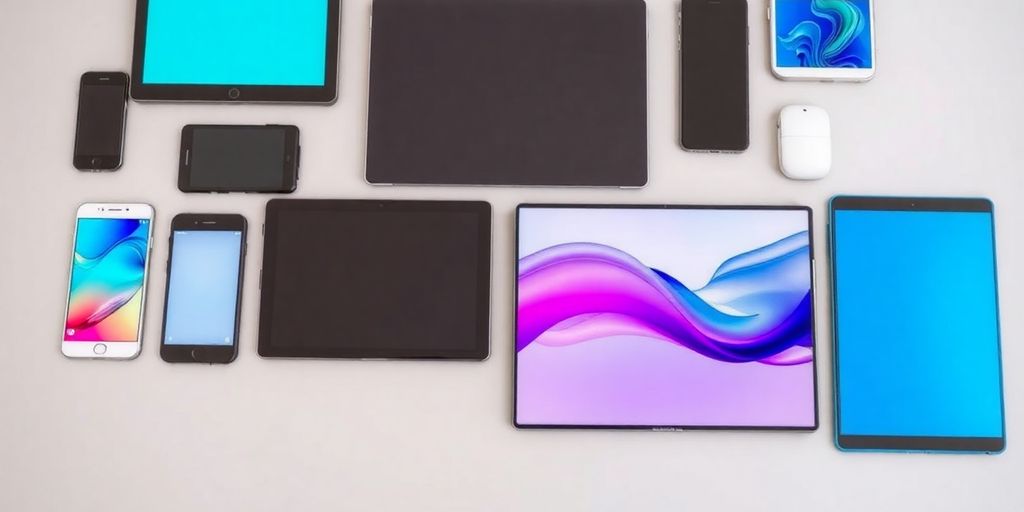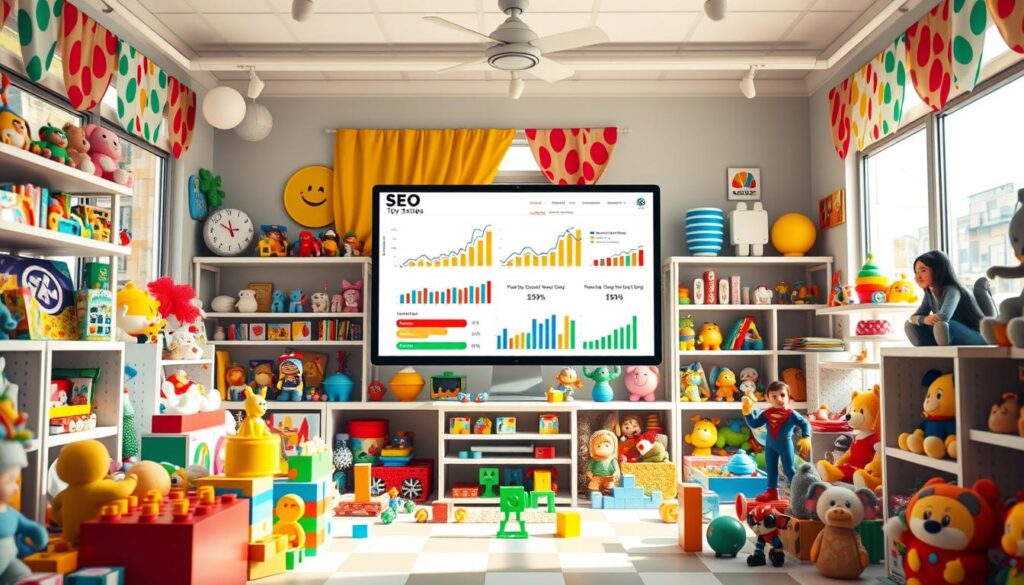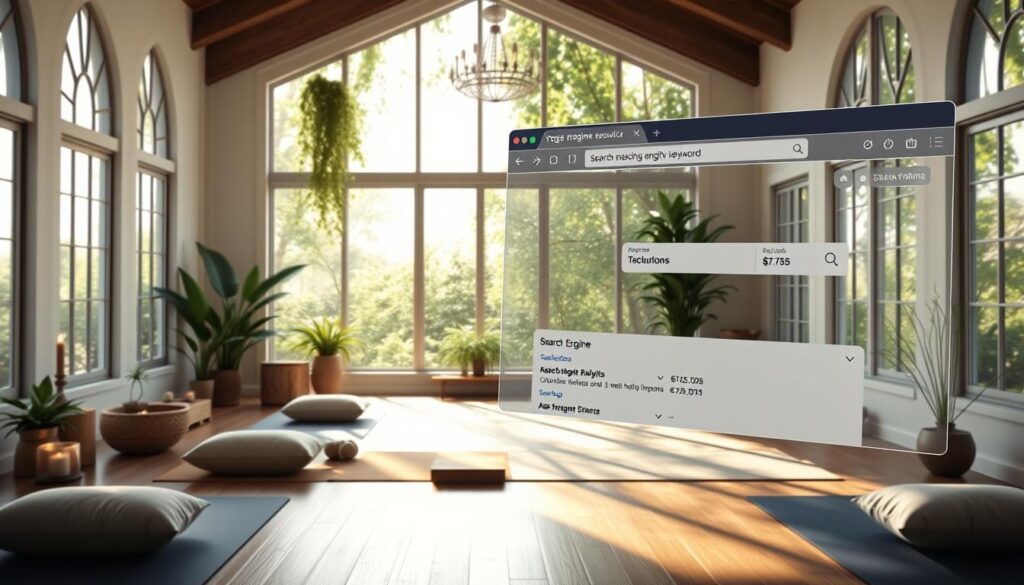Alright, so you’re running an electronics store and you’ve probably heard about SEO, right? It’s that thing everyone’s always talking about to get your website noticed. But what exactly is SEO for electronics stores? In simple terms, it’s about making sure your store shows up when people search for gadgets online. Think of it like this: if someone types “best headphones” into Google, you want your store to be on that first page of results. Why? Because that’s where most of the clicks happen. And more clicks mean more visitors, which hopefully means more sales. So, let’s break down the key points of SEO for your electronics store.
Key Takeaways
- SEO helps your electronics store get noticed online, bringing in more visitors.
- Using the right keywords is crucial for reaching your target audience.
- Local SEO can drive foot traffic to your physical store locations.
- Improving user experience on your site can boost your search rankings.
- Regularly updating your content keeps your site relevant and engaging.
Understanding SEO for Electronics Stores

Defining SEO in the Electronics Context
SEO, or Search Engine Optimization, is all about getting your electronics store noticed online. It’s like making sure your shop sign is big and bright so everyone can see it. For electronics stores, this means using the right keywords and content to make sure people find your site when they’re searching for things like phones, TVs, or gaming consoles. SEO is not just a tech thing; it’s about understanding what your customers are looking for and making sure your site answers their needs.
The Importance of SEO for Online Visibility
In today’s digital world, having an online presence is a must. But just being online isn’t enough. You need to be visible. That’s where SEO comes in. By increasing online visibility for retail businesses, SEO helps your electronics store show up in search results, making it easier for potential customers to find you. It’s like being on the main street instead of a back alley. More visibility means more traffic, which can lead to more sales.
How SEO Impacts Sales and Customer Engagement
SEO isn’t just about getting people to your site; it’s about keeping them there and turning them into customers. When done right, SEO can improve your site’s content and user experience, making visitors more likely to stick around and make a purchase. Good SEO strategies can also help you connect with customers at different stages of their buying journey, from just browsing to ready to buy. This connection can lead to better engagement and ultimately, more sales.
SEO is like the digital handshake between your electronics store and potential customers. It’s your way of saying "hello" and inviting them in to explore what you have to offer.
Key Components of Effective SEO Strategies
On-Page SEO Techniques
On-page SEO is all about optimizing the elements on your website that you can control. This includes your site’s content, HTML tags, and internal links. Meta tags, such as title tags and meta descriptions, play a crucial role in informing search engines about the content of your pages. Make sure these tags are concise and relevant to the page content.
Additionally, keyword optimization is vital. Use primary and secondary keywords naturally within your content to help search engines understand what your site is about. Consider using bullet points to break down important information, making it easier for both users and search engines to digest.
- Optimize title and meta tags
- Use headers and subheaders effectively
- Include primary and secondary keywords naturally
Off-Page SEO Strategies
Off-page SEO focuses on increasing the authority and credibility of your website through external methods. Building quality backlinks is a key strategy here. The more reputable sites that link back to your content, the more trustworthy your site appears to search engines.
Social media engagement is another off-page tactic. By sharing your content on platforms like Facebook and Twitter, you can reach a broader audience and potentially gain more backlinks.
- Build quality backlinks
- Engage with social media platforms
- Collaborate with influencers for wider reach
Technical SEO Considerations
Technical SEO is about optimizing the infrastructure of your site so that search engines can crawl and index it effectively. Ensure your website is mobile-friendly, as a growing number of users access sites via mobile devices.
Page speed is another critical factor; a fast-loading site improves user experience and can positively impact your rankings. Use tools to analyze your site’s speed and find areas for improvement.
- Ensure mobile-friendliness
- Optimize page load speed
- Implement HTTPS for security
SEO is not just about keywords and backlinks. It’s about creating a seamless experience for users and search engines alike, ensuring your site is accessible, fast, and relevant.
Targeting the Right Keywords for Electronics
Identifying Primary and Long-Tail Keywords
When it comes to electronics, picking the right keywords is like finding the perfect tool for a job. You need a mix of broad and specific terms. Primary keywords are the big hitters—think "smartphones" or "LED TVs." These are the words everyone uses, so they’re highly competitive. On the flip side, long-tail keywords are your secret weapons. They might be something like "4K OLED TV with HDR," which is more specific and less competitive. Long-tail keywords are great because they target folks who know exactly what they want and are closer to making a purchase.
Utilizing Keyword Research Tools
Finding the right keywords isn’t just guesswork. Tools like Google’s Keyword Planner or Search Console can be your best friends here. They help you see how often certain words are searched and how tough the competition is. These tools can also suggest new keywords you might not have thought of. Here’s a quick list of what they can do:
- Discover new keywords, both broad and specific.
- Show average monthly searches.
- Estimate how much you’d need to bid on these keywords if you were running an ad campaign.
Incorporating Keywords into Content
Once you’ve got your keywords, it’s time to weave them into your content. Don’t just stuff them in there—Google’s too smart for that. Instead, use them naturally in your product descriptions, blog posts, and even your meta tags. A good rule of thumb is to include your primary keyword in the title and a few times throughout the text. Long-tail keywords can be sprinkled in where they make sense. Remember, the goal is to make your content helpful and relevant to what people are searching for.
Crafting content around well-researched keywords not only helps you rank higher in search engines but also ensures that you’re meeting the needs of your audience. It’s about creating a bridge between what people are searching for and what you offer.
By focusing on the right keywords and using them wisely, you’ll not only improve your search engine rankings but also attract the right customers who are ready to buy. For more on choosing effective keywords, check out this guide.
Local SEO Strategies for Electronics Retailers
Optimizing for Local Search Queries
Local SEO is like the secret sauce for electronics retailers. If you want to grab the attention of nearby customers, start by optimizing your Google Business profile. Make sure your business is listed in local directories, and keep your info consistent everywhere. This helps you pop up in local searches when someone nearby looks for electronics.
Building Local Backlinks
Backlinks from local websites can be a game-changer. Think about partnering with local bloggers or news sites to get your store mentioned. Maybe sponsor a local event or collaborate with nearby businesses. These local links boost your credibility in the eyes of search engines.
Engaging with the Local Community
Getting involved in your community is a win-win. Host workshops or events at your store to attract local visitors. Not only does this bring people in, but it also builds a connection with the community. Plus, when people talk about your events online, it creates more buzz for your store.
Local SEO isn’t just about showing up in search results; it’s about being part of the community. When your store is seen as a local staple, it naturally attracts more foot traffic and online interest.
Enhancing User Experience for Better SEO
Website Design and Navigation
Creating a user-friendly website is like setting up a well-organized store. When visitors land on your page, they should know exactly where to go and what to do next. A clear, intuitive layout helps users find what they need without getting frustrated. Think of it as making sure the aisles in your store aren’t cluttered.
- Simple Navigation: Use clear labels for menus and categories.
- Consistent Layout: Keep the design uniform across all pages.
- Logical Structure: Group related items together for easy access.
A well-thought-out design can significantly improve how users interact with your site, keeping them around longer.
Mobile Optimization
With more folks browsing on their phones, having a site that works well on mobile is a must. If your site looks like a jumbled mess on a phone screen, people will bounce faster than you can say "SEO."
- Responsive Design: Ensure your site adjusts to different screen sizes.
- Fast Loading Times: Mobile users are impatient; slow sites lose visitors.
- Easy-to-Click Links: Make sure buttons and links are thumb-friendly.
By focusing on mobile optimization, you not only improve user experience but also boost your chances of ranking higher in search results.
Page Load Speed and Performance
Nobody likes waiting for a page to load, especially when they’re shopping online. Slow sites can cost you potential customers and hurt your SEO efforts.
- Minimize Image Sizes: Large images can slow down your site.
- Use Browser Caching: Speed up load times for returning visitors.
- Reduce Server Response Time: Choose a reliable hosting provider.
Quick Tip: Enhance user experience on your website by implementing essential optimization tips that improve engagement and return on investment.
Improving page speed not only keeps users happy but also signals to search engines that your site is worth showing in search results.
Content Marketing and SEO Synergy
Creating Informative and Engaging Content
Content is king, right? But it’s more than just about having words on a page. For electronics stores, creating content that informs and engages is vital. Think of it as a conversation with your customers. You’re not just selling a product; you’re sharing insights, tips, and stories that resonate with them. When your content is engaging, it keeps people on your site longer, which can boost your SEO. Consider writing blogs about the latest tech trends or creating how-to guides for your products.
Utilizing Blogs and Guides
Blogs and guides are not just filler; they’re tools. They help you reach your audience in a meaningful way. Imagine a customer wondering how to choose the best laptop for gaming. Your blog could be the guide they need. By targeting informational search queries like "best gaming laptop 2025," you can draw in potential customers who are in the research phase of their buying journey. This is where your keyword strategy comes into play. Enhancing SEO strategies with well-placed keywords in your content can make a big difference.
Leveraging User-Generated Content
User-generated content (UGC) is like gold for SEO. It adds authenticity and trust to your site. Think about reviews, photos, and Q&As from your customers. These not only improve your site’s credibility but also keep your content fresh. Search engines love fresh content. Plus, UGC can help with keyword optimization as customers naturally use relevant terms in their content. It’s a win-win: you get more content, and your customers feel heard.
Measuring SEO Success for Electronics Stores

Key Performance Indicators (KPIs)
When it comes to tracking how well your SEO efforts are paying off, KPIs are your best friend. These indicators give you a snapshot of what’s working and what needs tweaking. For electronics stores, some crucial KPIs might include:
- Organic traffic: This shows how many visitors find your site through search engines, without paid ads.
- Conversion rate: How many of those visitors are actually buying? That’s the real test.
- Bounce rate: If people leave after viewing just one page, it might mean your content isn’t matching their expectations.
Using Analytics Tools
You can’t manage what you don’t measure, right? That’s why analytics tools are indispensable. They help you dig into the nitty-gritty details of your site’s performance. Tools like Google Analytics can show you:
- Which pages are getting the most traffic.
- What keywords are driving visitors to your site.
- How users are navigating through your site.
This data is gold when you’re trying to figure out how to improve your SEO game.
Adjusting Strategies Based on Data
Once you’ve got all this data, the next step is to actually use it. It’s not just about gathering numbers; it’s about making smart decisions. If you notice that a certain keyword isn’t bringing in traffic, it might be time to switch it up. Or, if a particular blog post is getting lots of hits, maybe you should create more content like that.
"The beauty of SEO is that it’s not set in stone. You can always tweak and adjust to get better results."
By regularly reviewing your KPIs and analytics, you can keep your SEO strategy agile and effective. This way, your electronics store can stay ahead in the ever-competitive online market.
For more insights on essential metrics for tracking SEO performance, including organic traffic, keyword rankings, and conversions, check out our guide.
Conclusion
So, there you have it. SEO for electronics stores isn’t just a fancy buzzword—it’s a real game-changer. Whether you’re running a local shop or a big online store, getting your SEO right can make all the difference. It’s about making sure people can find you when they’re searching for that new gadget or tech accessory. And let’s face it, in today’s digital world, if you’re not on that first page of search results, you’re kind of invisible. So, take the time to understand your audience, pick the right keywords, and keep your content fresh and relevant. It might seem like a lot of work, but trust me, it’s worth it. Your store’s success could depend on it.
Frequently Asked Questions
What is SEO and why is it important for electronics stores?
SEO stands for Search Engine Optimization. It’s a way to make your electronics store more visible online. By using SEO, your store can appear higher in search engine results, making it easier for customers to find you and buy your products.
How does SEO help boost sales for electronics retailers?
SEO boosts sales by driving more traffic to your website. When more people visit your site, there’s a higher chance they’ll buy something. SEO helps your store show up in search results when people look for electronics, increasing your sales opportunities.
What are some simple SEO techniques for electronics stores?
Some simple SEO techniques include using the right keywords, creating good content, and making sure your website is easy to use. You can also get other websites to link to yours, which helps improve your site’s reputation and ranking.
How can local SEO benefit my electronics store?
Local SEO helps your electronics store show up in searches made by people nearby. By using local keywords and getting listed in online directories, you can attract more local customers who are looking to buy electronics in your area.
What role does user experience play in SEO?
User experience is important for SEO because search engines like Google want to show websites that people enjoy using. If your site is easy to navigate, quick to load, and looks good on mobile devices, it can help improve your SEO ranking.
How do I measure the success of my SEO efforts for my electronics store?
You can measure SEO success by looking at metrics like website traffic, search engine rankings, and sales. Tools like Google Analytics can help you track these numbers and see how your SEO strategies are working.






